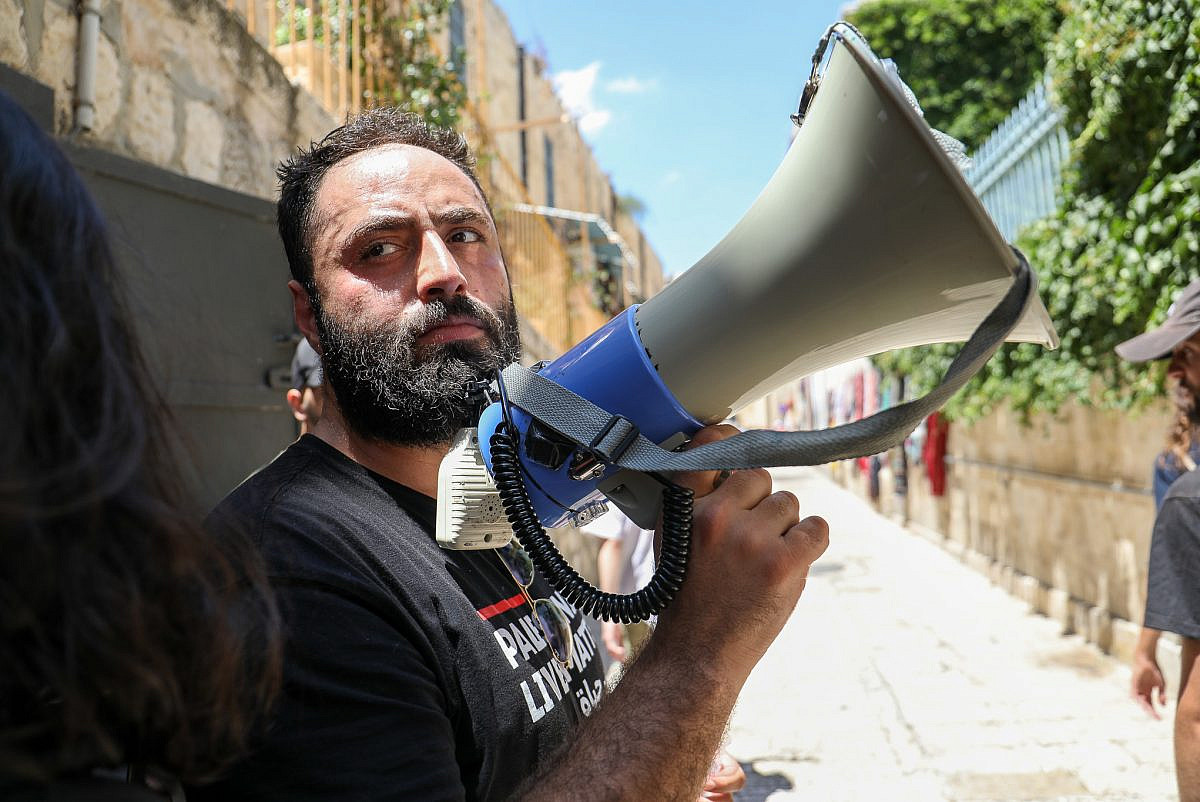It’s 5:15 p.m. at Damascus Gate in Jerusalem’s Old City. Rafat Ghaith-Sub Laban arrives late for our meeting after sitting in traffic at the Hizma checkpoint, which connects occupied East Jerusalem to the rest of the West Bank.
The son of Nora and Mustafa, Rafat works as an officer for the UN High Commissioner for Human Rights in Ramallah. Over the past months, he had to take a break from the fieldwork he usually conducts in the Jenin area — both due to burnout, and in order to help his parents keep the family’s home in the Old City from being taken over by Israeli settlers. On July 11, following a decades-long legal battle, Rafat’s parents were expelled.
Nora was born in the home in 1955, and she and her husband raised their five children there. As far as she knows, the home was previously owned by the Palestinian Al-Rassas family, and Jews reportedly lived in it until 1948. That year, following the Nakba, Jewish-owned buildings on the eastern side of Jerusalem were transferred to the Jordanian authorities, which occupied it as part of an armistice agreement with the newly established Israeli state. Nora’s family, the Ghaiths, were bestowed the house.
After Israel occupied East Jerusalem during the Six Day War, the family home was transferred to the ownership of the Israeli General Custodian, in accordance with the 1950 Absentees’ Property Law. In 1970, Israel passed the Legal and Administrative Matters Law, allowing for Jewish individuals and organizations to “reclaim” properties in East Jerusalem that were owned by Jews before 1948; the same policy does not apply to Palestinians who lost their homes in West Jerusalem or anywhere else in what became Israel after the Nakba.
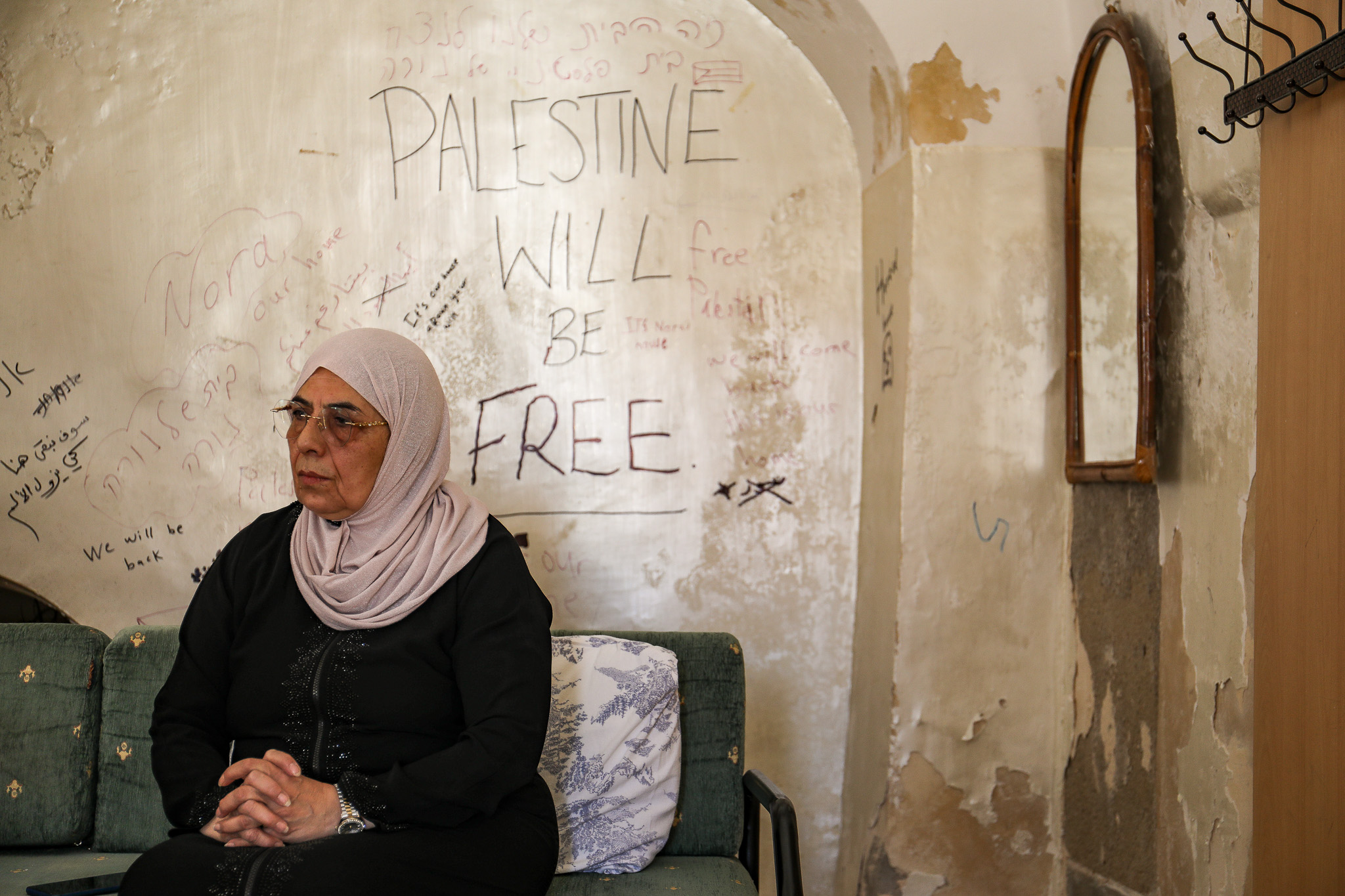
By this mechanism, the property — which was still inhabited by Nora and her family — was transferred in 2009 to the control of the Kollel Galicia trust, a shadowy endowment ostensibly caring for Ashkenazi Jews from former Austrian Galicia who now reside in Jerusalem.
In the years that followed, the family spent many days in Israeli courtrooms fighting for the house. Then, in March, the Supreme Court rejected the family’s final petition and approved their expulsion. In June, a “flexible” eviction order went into effect, and on July 11, the family was kicked out. The very same morning, Jewish settlers entered the house and draped Israeli flags from the walls.
Nearly two weeks later, a representative of the new settler tenants informed the Ghaith-Sub Labans that their furniture would be removed from the house at 8:00 a.m. the next day, and if they did not come to pick it up, it would be thrown in the garbage. When they arrived, one of the new tenants waved a yogurt bottle from the family’s refrigerator in Rafat’s face – both to tease him about no longer living there, and because Sub Laban in Arabic means to pour yogurt. Rafat pushed the bottle away, and the yogurt spilled over another settler.
The settlers called the police, claiming Rafat assaulted them. When they arrived, the police immediately arrested Rafat, and for the next seven hours kept him with his arms handcuffed and his legs bound. Rafat tells me that the settlers had repeatedly assaulted the family in recent months, including in front of police, with no consequences. Yet here, he was arrested immediately at the behest of the settlers, without the police even asking any questions.
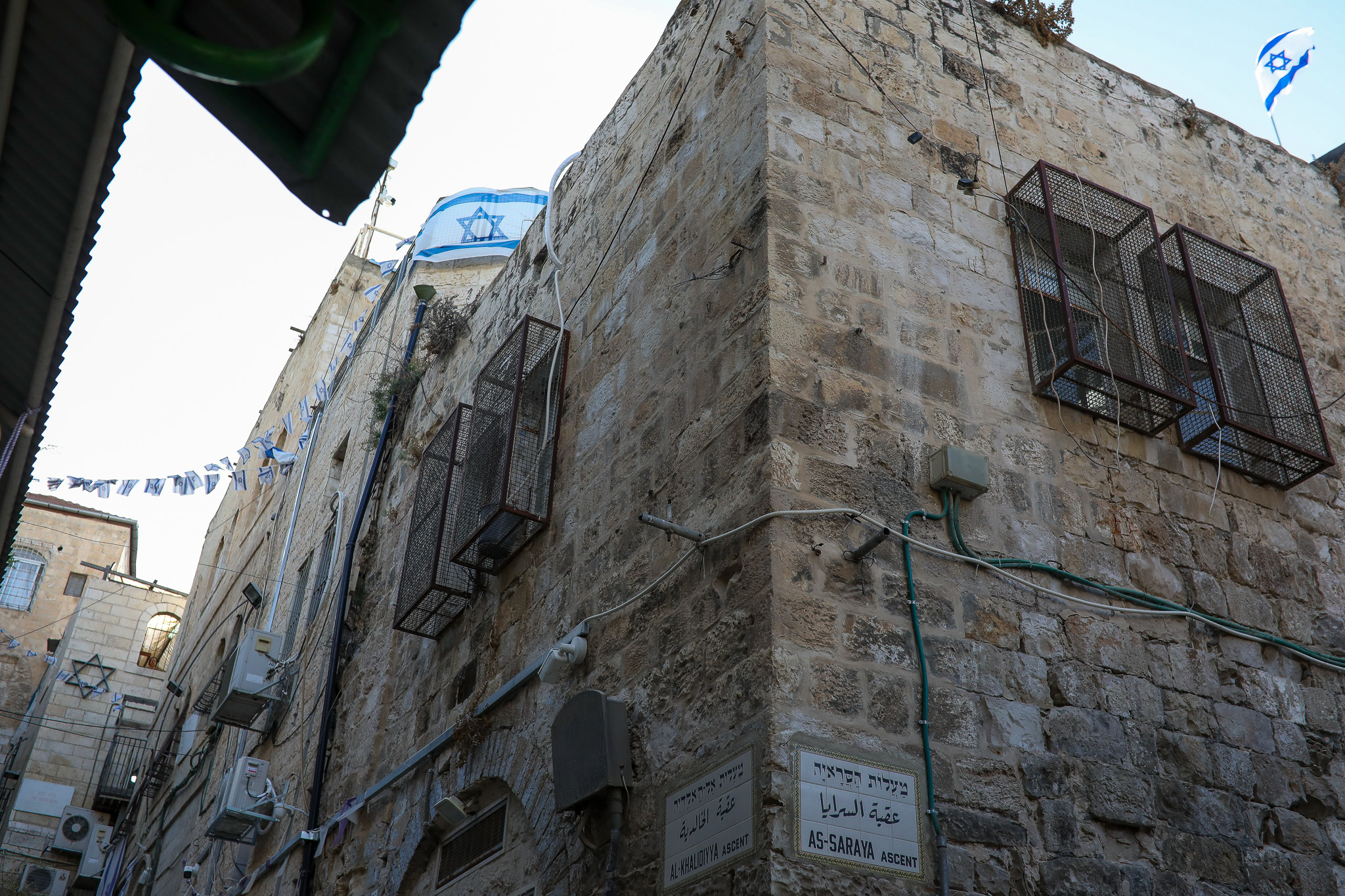
Rafat was released on bail on terms that included a restraining order from the Old City for two weeks. A few days later, the family was fined NIS 48,500 (nearly $13,000) to pay for 160 hours of policing, the private contractor company that vacated the house, and the legal expenses of the settlers who took over their home.
I spoke to him soon afterward to hear his reflections on the family’s struggle. The interview has been edited for clarity.
First of all, how are you holding up?
As a family, we feel like we were targeted and harassed by Israeli governments, the army, police, and settlers. This is exhausting. It takes everything from you: physical health, mental health, and your daily life.
My mother in the 1980s was going to court hearings after giving birth. If one attempt to evict us failed, they started a new one. My mom has been on anti-depression and anti-anxiety medication for over 8 years. And just looking at the last few months, it was really hectic. We tried our best to put all of our efforts into raising our voice, and the world heard us. The world listened. And it wasn’t enough in the end. But for us, fighting with a loud voice meant everything; Israel wanted a silent, perfect victim, and we refused to allow it.
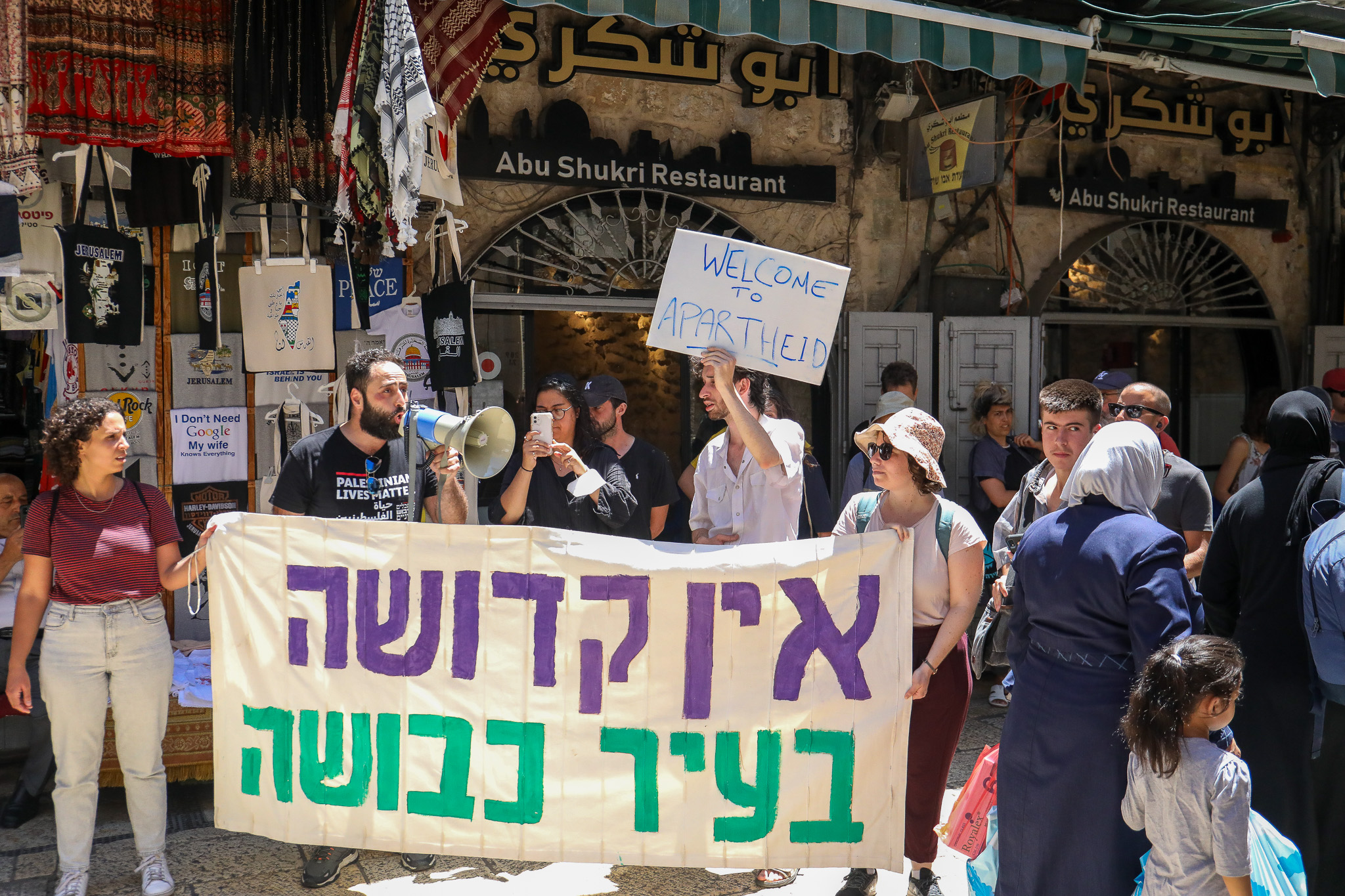
Tell me about what happened after you were informed of the “flexible eviction” order. How did it affect you?
During the last months before we were evicted, we had people [present at the home] 24/7 — activists, media, diplomats. We did all of that as a family to highlight the issue, but this, along with the psychological pressure and fear caused by the imminent forced eviction, were very exhausting. At the moment, we as a family are very dysfunctional; we can’t even take care of our basic necessities. I can’t feed myself for weeks, and the same applies to my mom and my dad.
Where does the family live now?
In 2016, the court decided me and my siblings couldn’t live with our parents, two elderly sick people, in the Old City anymore. Myself and Lama [Rafat’s sister] rented an apartment in Shu’afat [a Palestinian neighborhood in Jerusalem], and that’s where my parents came after the eviction. During an eviction attempt in 2018, they used this house against us to claim we have a property outside the Old City, meaning that we probably don’t need the house in Al-Khalidiya.
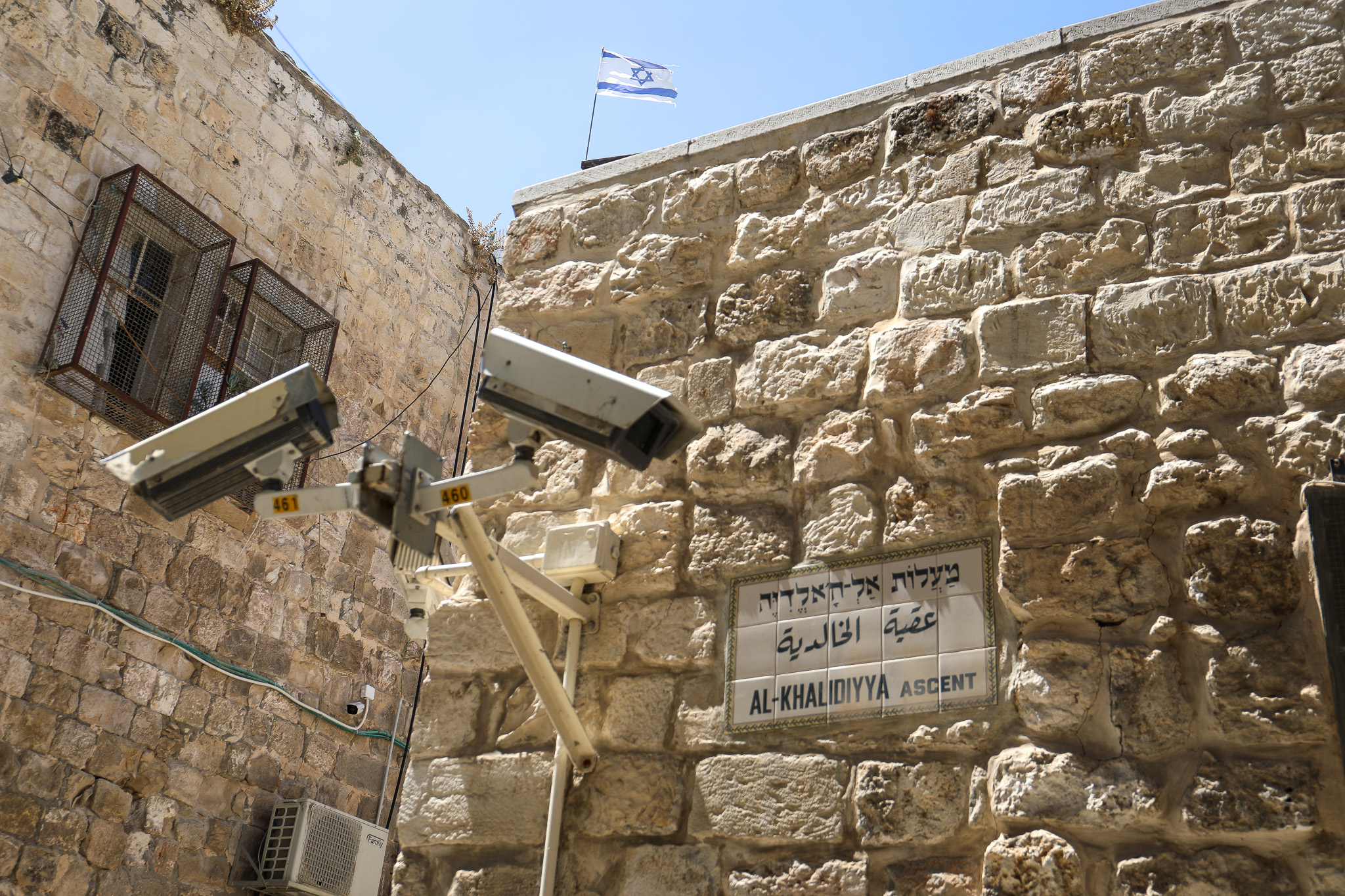
Who lives in the house now?
We don’t know. It seems no one is living there full-time yet. They are going to renovate the house, but I think they moved furniture in already. The place is not in good shape; we were not allowed to renovate, and we stayed there with a risk to us. For example, a year ago, a stone in the terrace fell down when no one was there, but if it fell on someone’s head it would have killed them. They force you to live this way and then make you leave.
On the day of the expulsion, you went around the neighborhood calling on Palestinians to join you. How did you feel about the solidarity you’ve received from Palestinians, and from Israelis?
I’ve been doing human rights work for 12 years, so I know the eviction phenomenon from up close. Usually, the family fights it on their own. Most of the neighbors will be afraid to go out in case they get arrested or assaulted. In the West Bank, they are afraid to lose their work permits in Israel, while in Jerusalem, many Palestinians are afraid to lose their jobs over their political views.
In our case, they used rumors to make us feel alone — they told our neighbors that we sold the rights to our house. It was meant to isolate us from our society and prevent Palestinian solidarity with us. There were some Palestinian activists, NGOs, and great media coverage. But in the end, most of the solidarity actions were by Israeli Jews from the left … not all Palestinians can speak English and speak up on their own.
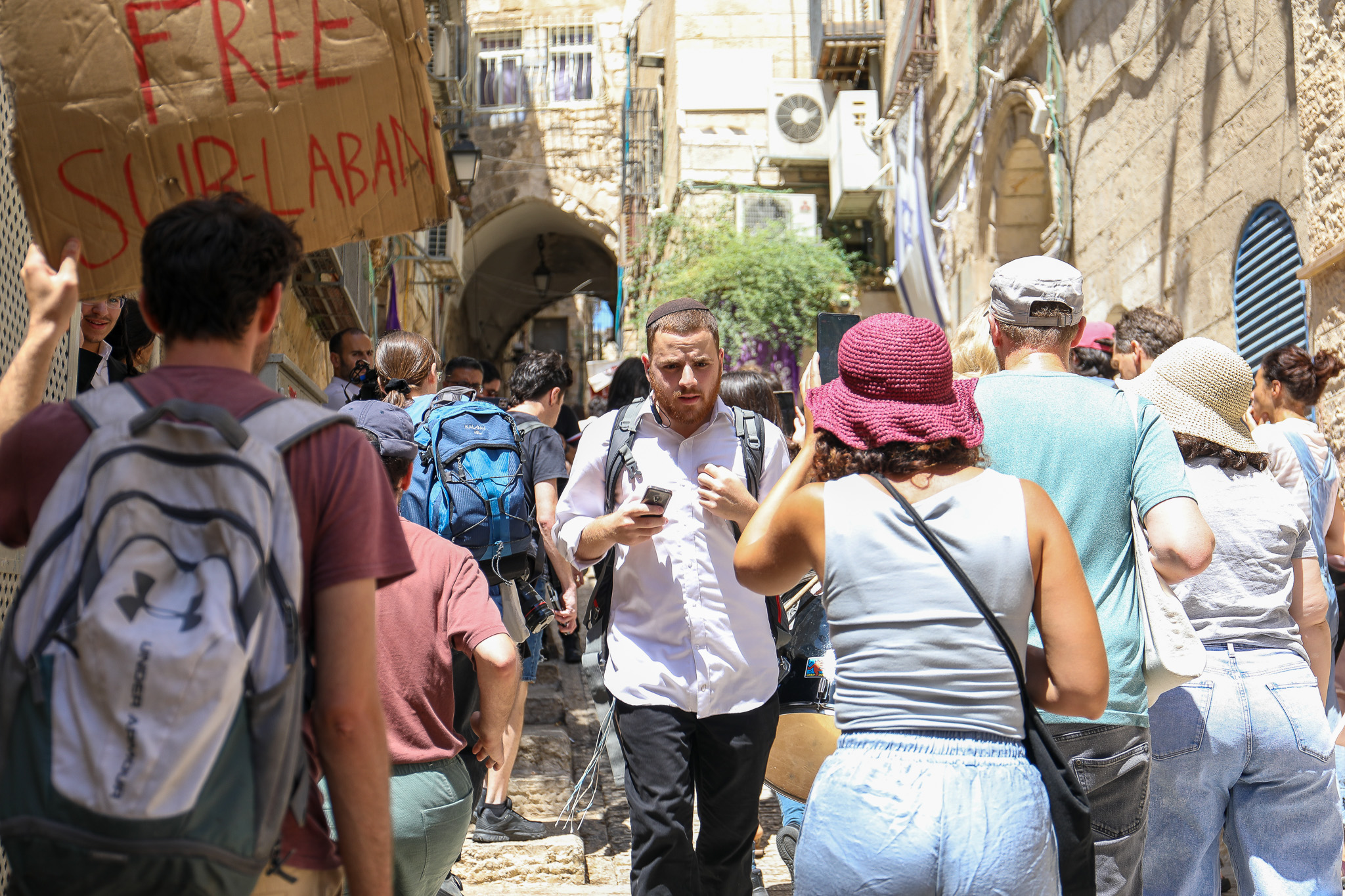
Do you still feel alone?
Honestly, against the state and its organizations — yes, I still feel very alone. But the people of Free Jerusalem [an activist group] wouldn’t leave us, they were present all the time. Even after the eviction, they came to visit my parents, to bring food, to bring plants to replace the ones that were left in our home. But again, the street didn’t join us. Some neighbors and families stood with us, but in the bigger picture, no.
But to me, the people who go to stand in Sheikh Jarrah, Masafer Yatta, and Khan al-Ahmar are the righteous ones. For me their voice is important, because they joined our message and amplified it. This gave us affirmation that this is a crime. If it was just Palestinians calling it a crime, people would call us antisemites.
What can other families who are in danger of eviction learn from your case?
Israel wants us to be silent in order to expand the colonial project without a challenge. If my family wouldn’t have fought in 2015, we would have been evicted back then. I remember in a court hearing in 2015, the first row was filled with diplomats, and the second and third were filled with UN staff, and the judge behaved differently. So, for me, their presence is meaningful. Statements are not enough anymore.
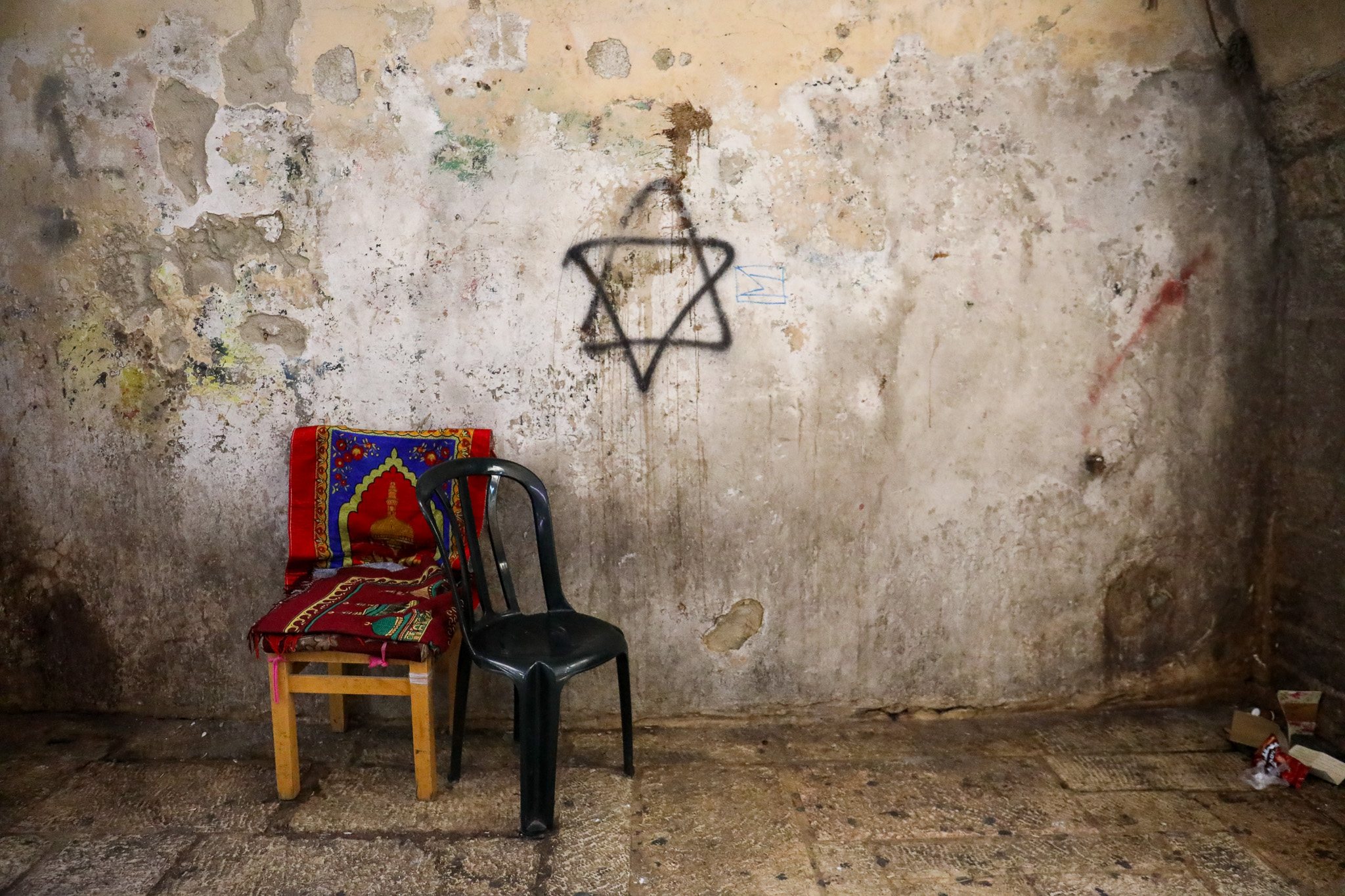
What message would you like to send to anyone who reads about you?
We need to understand that the people who evicted us from our home are not marginal — they are the people in government. This is what I don’t get about the Israeli demonstrations [against the far-right government and the judicial coup] — what are you protesting about? They are protesting to maintain the status quo. The only reason they go protesting is because this government touched their rights. But they have been doing this to us for decades, and none of them protested.
Most read on +972
If you want to fight for real democracy, go defend the Palestinians in Khan al-Ahmar, go to Sheikh Jarrah, go where the violence and the oppression is taking place. You cannot allow a system of violence to thrive for decades and not expect it to turn on you. You’re creating a monster, and in the end it will turn on you. I think the road ahead for this struggle should be with a united voice for Muslims, Christians, Jews, Druze, Armenians, etc. All who face the same discrimination should stand up against it. This is the time for the Israelis demonstrating to catch up.

